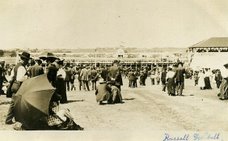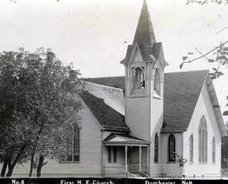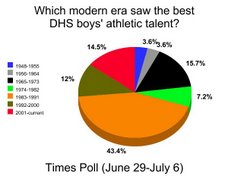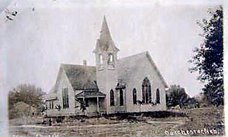Nestled on a remote, windswept hill in Saline County -- between the communities of Dorchester and Friend -- sits Gilbert’s Graveyard, officially
known as Gilbert-Hulse Cemetery.
For years, dating back to our first year in 2007, the Times has featured Gilbert's Graveyard on its list of "spookiest places." But we know that our annual October list of area haunts doesn't convey the real story behind this pioneer cemetery. Worse yet, the ghost stories perpetuated by sites like ours may have only encouraged the low-IQ vandals who have damaged the cemetery beyond repair over the decades.
Today, we tell the real story behind Gilbert's Graveyard -- the final resting place for Saline County’s earliest
pioneers.
A Piece of Pioneer History
In 1865 Jonas Gilbert, his wife Louisa, and their six children left Darke County, Ohio, traveling by wagon train to settle in Nebraska. After a journey lasting 52 days, the wagon train reached its destination on Turkey Creek, in what later became Saline County.
Jonas became one of the county's first commissioners, and his son John became the county's first assessor.
Established in 1872, Gilbert-Hulse Cemetery was founded when Jonas and
Louisa Wyans Gilbert sold a half-acre plot to the Hulse family for use
as a community burial ground. It became the resting place for many of
the area’s first settlers, including some Union and Confederate
veterans of America's Civil War.
For decades, this plot of land preserved the history of
those who first turned the soil in the mid- to late-1800s. The cemetery holds the remains of families who endured the brutal conditions of the Plains in those early years.A majority of the graves belong to babies, toddlers, teens, and young mothers who died while giving birth or shortly after.
Outspoken Agnosticism
The cemetery’s notoriety stems largely from Jonas and John Gilbert's outspoken agnosticism, although it appears today that atheism would be a better description of their beliefs.
Jonas passed away in 1882. His headstone features a highly provocative,
anti-establishment epitaph, famously stating that the Gilbert died
unafraid of "gods or ghosts or Heaven or Hell and all their hosts."
The controversy surrounding his beliefs -- and
particularly the inscription on his tombstone -- is a foundational to the cemetery's lore.
Meanwhile, his son John "never belonged to a church ... and called himself an agnostic," according to the Dorchester Centennial history book. In the late 1800s, Dr. Frank Hamilton of Friend once asked John to embrace Christianity. That is when John Gilbert allegedly "went into a seizure for about two minutes, his muscles jerked, his eyes became bloodshot, his face became congested and red, his mouth became dry, and he kept wiping his lips with his tongue. During the attack, he venomously cursed God."
Gilbert later donated money to build a library in Friend, on the condition that his anti-God books would be on the shelves.
Vandalism and Ghostly Tales
The inscription on Jonas' headstone made the Gilbert name famous. But that notoriety is what has led to the state of the graveyard today.While it has been more than 140 years since Jonas died, rumors of non-Christian rituals
and strange happenings in the graveyard -- over many decades -- cemented its status as an
unusual and often unsettling location.
Among the strange events reported there:
- Visitors have long claimed to
hear unexplained noises and witness the apparent shifting of burial
markers.
- Eyewitness accounts include visitors describing
seeing a "black fog" rising from graves, or being followed by unexplained flashing lights that appeared to emerge from the cemetery
grounds.
- Some visitors have even claimed they saw the figures of the Gilbert family and other pioneers roaming the grounds.
The sad reality of Gilbert's Graveyard is the significant vandalism it has faced over several decades. The acts of disrespect have led to the destruction of roughly 80 percent of the cemetery's headstones.
Jonas' controversial gravestone itself
was broken by vandals and now lies in pieces. (This photo shows how it once looked whole.) Many of the pioneer graves, including those of Civil War
veterans, are no longer marked, erasing a significant portion of the
county’s history.
Today, those who visit this remote prairie cemetery are asked to remember
the significant loss of our area history and to show respect. Recognize that a place
meant for eternal rest has been tragically turned into a frequent target
of criminal desecration.


























































